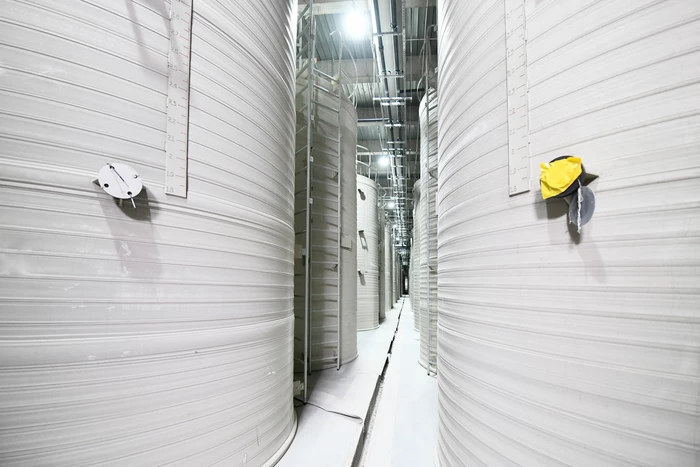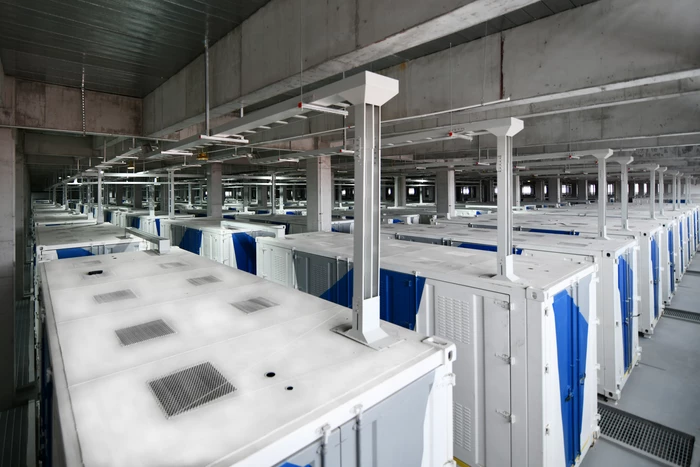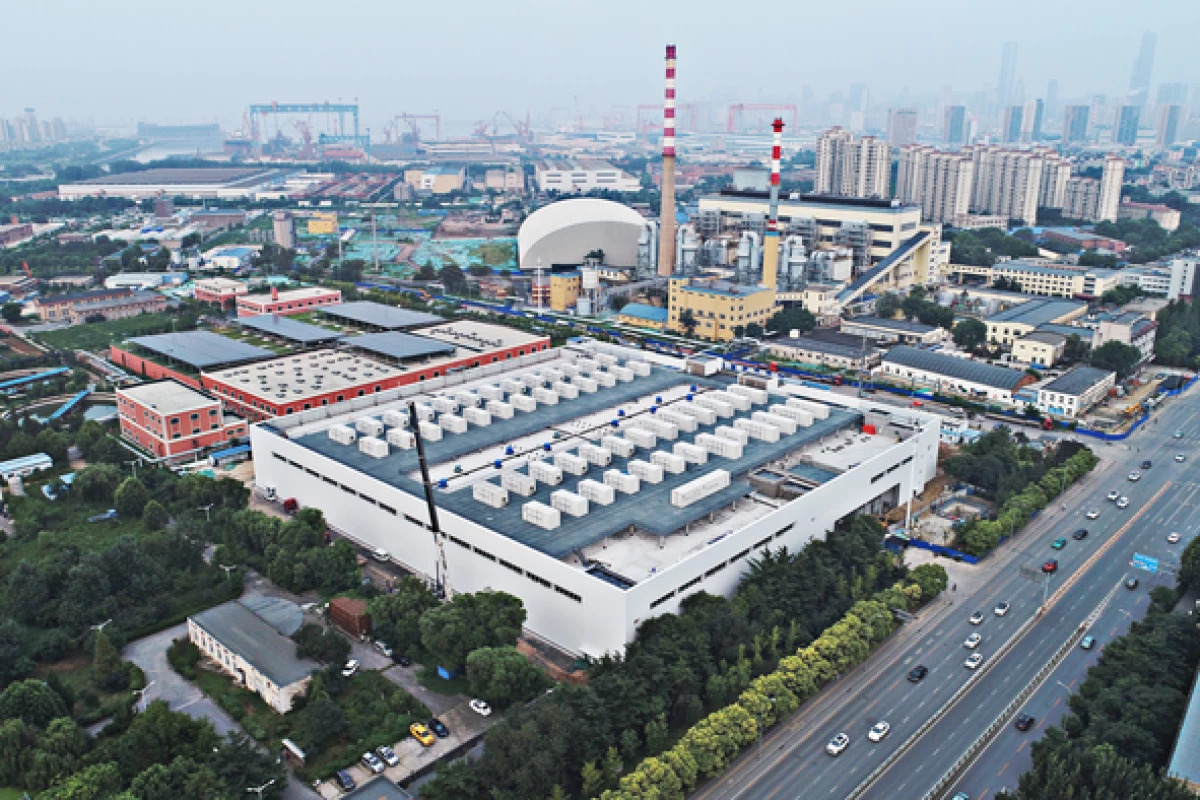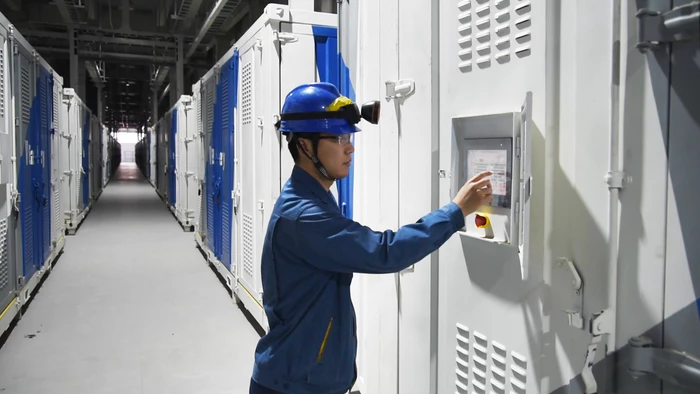The Chinese city of Dalian has just switched on a world-leading new energy storage system, expected to supply enough power for up to 200,000 residents each day. With an initial capacity of 400 MWh and output of 100 MW, the Dalian Flow Battery Energy Storage Peak-shaving Power Station will serve as a power bank for the city and assist in its uptake of renewable energy sources such as wind and solar.
As a vanadium flow battery, the new energy storage system differs from the common lithium-ion batteries in use in today's electric vehicles and smartphones. They use massive tanks to store chemical energy in the form of liquid electrolytes, which can be converted into electricity by passing the fluid through a special membrane.
This makes flow batteries a relatively cheap energy storage solution, and an attractive one when it comes to renewable energy as they can store it away for months at a time. This lends itself well to the storage of wind and solar, which can be intermittent by nature, and could see these sources leveraged to help cities deal with spikes in energy demand.

We’ve seen this idea explored through a 120-MW redox flow battery built in underground salt caverns, supplying enough daily power for 75,000 homes in Jemgum in northwestern Germany. The Dalian Flow Battery Energy Storage Peak-shaving Power Station won’t quite meet this output to begin with, but is designed to be scaled up and eventually output 200 MW with an 800-MWh capacity.
It is therefore billed as the world’s largest flow battery so far, and China’s first large-scale chemical energy storage demonstration project. It was hooked up to the grid in Dalian last Thursday, and is expected to shore up reliability of power in the region by filling valleys and absorbing peaks in its energy demands.

Renewable energy sources will charge up the batteries during the “valley” load period, converting electrical energy into chemical energy. This will be converted back into electrical energy for consumers once again during peak grid load periods, serving as a power bank for the city.
More broadly, the station is hoped to serve as a demonstration for how flow batteries can improve reliability and manage spikes in energy demand in China, and help the country work toward reducing its carbon emissions.
Source: Chinese Academy of Sciences





